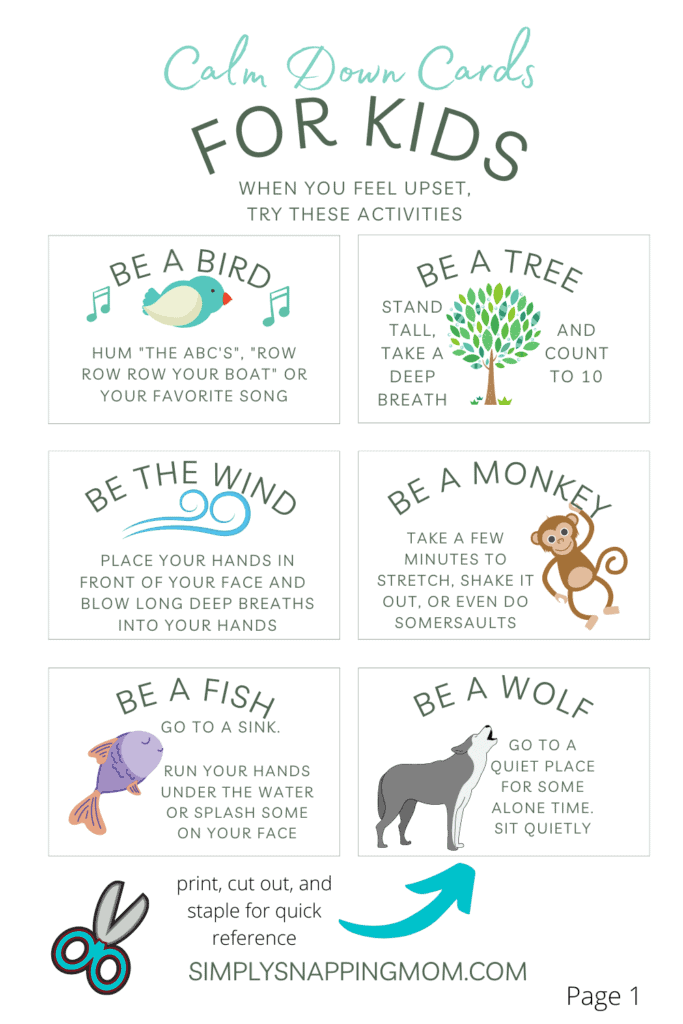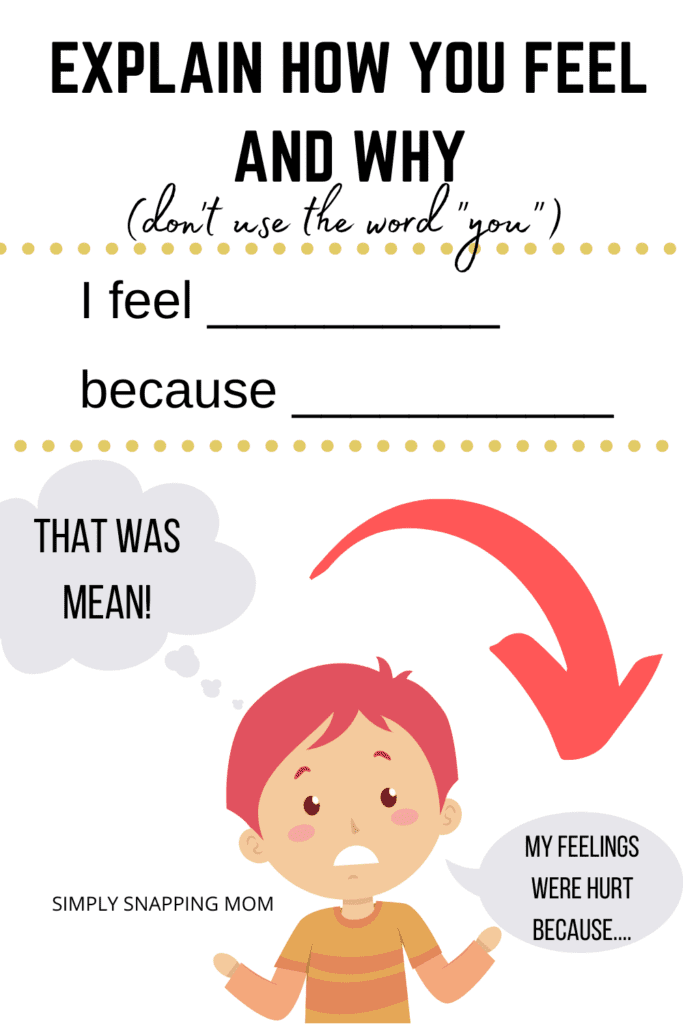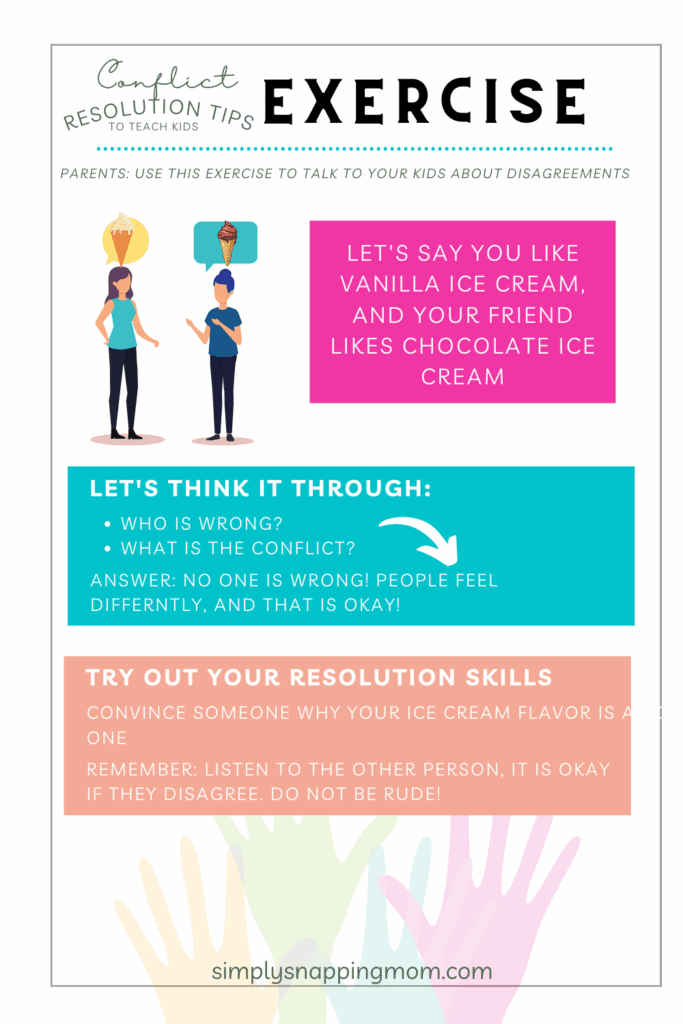Kids fight. It’s human nature, but you can reduce sibling fighting with these positive parenting strategies.
As we speak, two of my kids are fighting over something my daughter did in my son’s dream. Yes, in his dream. She was particularly snarky in his dream. He was mad. She was defensive. Though this battle is unresolvable, it doesn’t make it any less real.
There are those sweet days where continual laughter fills my house, and I feel truly blessed that I was able to give my kids friends in the form of brothers and sisters. Love and rainbows seems to just ooze out of our walls. Love and rainbows.
Then, of course, there are those more frequent days where the screaming and fighting makes me want to call a babysitter, grab my husband, and drive somewhere quiet and romantic.
Like Applebee’s for happy hour, or Mexico. I usually just settle for hiding in my laundry room for 5 minutes, and not answering when my kids try to find me to tattle on each other.
On other days, we have more of a “calm before the storm” situation. There is an eerie quietness in my home; then, similar to how an F5 level tornado appears almost without warning, the windstorm of sibling chaos whips through our halls leaving only destruction, tears, and hurt feelings in it’s path.
Kids will always fight. It’s only natural, but there are things you can do as parents to reduce the arguing and make it a positive learning experience.

You may also like: How to Help Kids Manage a Meltdown or Tantrum
How Siblings Shape Who We Become
When I think of the word ‘rivalry’, I picture two chivalrous knights dueling with swords for a treasure.
In our home, the “swords” are mean words or headlocks, and the “treasure” is who gets the bigger piece of pizza or who gets the red cup (because all of a sudden red is EVERYONE’s favorite color).
If this sounds like your home, that is no surprise. In fact, studies have shown that sibling conflict may happen up to eight times an hour.
No matter how annoying it is, it is important to realize that it is an important part of development. Positive interactions with siblings foster empathy, social learning, and achievement in school.
Related: 5 Ways to Raise Close-Knit Siblings
Additionally, letting kids play rough together has many benefits. Learn the benefits here, including building emotional intelligence, empathy, and sportsmanship
While some bickering is expected and a it plays a key role in teaching kids how to handle conflict, it can also be controlled with this simple method.

5 Steps to Managing Sibling Fighting
These simple steps will help you mitigate the perpetual battling and reduce sibling fighting. When your kids fight, do these 5 things:
Step One: Proactively Parent Each Kid Differently
Kids want to be seen as the most special by their parents. As parents, you may think that means that each child should be treated exactly the same.
In reality, we have to do the opposite. It is important to realize what motivates our children and what makes them feel loved. This is based on their personality type. Do they thrive off of rewards, or affection? Do they require alone time, or frequent interaction?
When kids feel fulfilled, the rivalry will be minimized.
Learn the 4 different personality types, how to identify which represents your kid, and how to speak their love language here.
Step Two: Intervene with a Calm Down
When you discover conflict brewing between your kids, it is important to control the situation before trying to rationalize with anyone.
Separate your kids and use these fun and simple calm down tools before moving forward with any logical resolution.


Related: Teach Kids How to Calm Down on Their Own
Step Three: Then Express Feelings in “I” Statements
This is a necessary ingredient to the recipe for a strong sibling bond. Encourage your family to talk in “I” messages.
Anytime an argument arises, take the opportunity to open the lines of communication with “I” statements
“I” statements force the speaker to express their own feelings, rather then placing blame on others. For example:
- “You” statement: You never listen to me
- “I” statement: I feel frustrated when I feel like I can’t express myself.
Since communication is a key quality in strong families, it is important to develop the conversation skills to effectively express your feelings and talk openly. When used properly, “I” statements lead to positive and efficient conversations between brothers and sisters.
You may also like: 5 Ways Girls Benefit from Playing Sports
Have your children fill in these blanks:

Step Four: Talk About Conflict Resolution
It is never too early to talk to kids about conflict resolution.
Break it down in a simple way that children can understand. I love to use “ice cream flavor” because who doesn’t love ice cream.
Here is a simple and quick exercise on conflict resolution. When kids can understand that others have different views, it can help them start to comprehend why their siblings feel differently than they do.
Print this and click here for full post on conflict resolution:

Step Five: Prioritize Family Time
Strong and emotionally intelligent families prioritize family bonding activities.
Strong, loving relationships with family members are needed for proper development. In fact, research shows that when teens spend more time with their parents, they are less likely to get in trouble at school or with the law.
Deliberately schedule family time. Whether it is a trip to the zoo or park, or even playing a board-game at the kitchen table.
Final Thoughts on Ending Sibling Fighting
Although we can’t fully eliminate sibling rivalry, we can do these 5 things to manage it:
- Understand each child’s individual needs
- When intervening, first calm down the situation
- Teach kids to express feelings in “I” statements
- Talk about conflict resolution skills
- Prioritize family time
Next time you find your children immersed in an argument, instead of heading to a happy hour or disappearing to hide in the laundry room, try this method.
If you found this helpful, share it and follow us on Facebook.


Ivan Jose
Thursday 17th of June 2021
I have two sons and this early I can already observe some form of rivalry, particularly with the use of toys. I'm teaching them to learn to share their books and toys with each other.
Eric Gamble
Thursday 17th of June 2021
Great tips on how to deal with Sibling rivalry. I know me and my sister used to fight a lot. Often it was because we were completely different in our personalities and outlook and how we learned. I am more sensory while she was more analytical. Thus I really like how you separate the kids and deal with them separately based on their personalities.
knycx journeying
Thursday 17th of June 2021
That's wonderful to know how to help and guide your children to deal with the situation and learn from the process at the same time. - Knycx Journeying
Oscar
Thursday 17th of June 2021
I'm wondering what would happen If I have a sibling. Thanks!
Candle
Thursday 17th of June 2021
This article is good!!! I was sold the minute I read "talk to each child differently". This is huge. Many parents create a parenting style and use it over and over on each child where it should be the opposite.